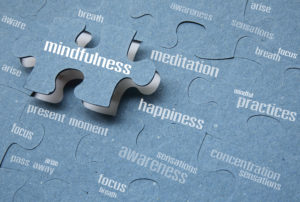Stress Reduction Techniques
 Stress is one of modern life’s biggest obstacles. While the amount of stress varies from person to person, day to day, and month to month, more than two-thirds of people feel stress on a daily basis. Dealing with stress can lead to issues at work, school, and home. Combating stress depends on trying practices, including exercise, diet, mindfulness, and relaxation, to find what combination of stress reduction techniques works for you.
Stress is one of modern life’s biggest obstacles. While the amount of stress varies from person to person, day to day, and month to month, more than two-thirds of people feel stress on a daily basis. Dealing with stress can lead to issues at work, school, and home. Combating stress depends on trying practices, including exercise, diet, mindfulness, and relaxation, to find what combination of stress reduction techniques works for you.
Ways to combat stress:
- Exercise: Yes, get moving! Moderate exercise, such as walking, cycling, vinyasa yoga, swimming, and jogging, are great activities to relieve mental stress. In addition to releasing endorphins that lead to enhanced moods, exercise lowers stress hormones, improves sleep, and leads to more confidence and a better wellbeing. Women should get 150 minutes of moderate exercise each week, which averages to 30 minutes five days a week. Mixing up the activities with yoga one day, swimming the next, and lunch-break walks will help keep it interesting.
- Diet: Certain foods, especially foods high in sugar, lead to the release of stress hormones from the adrenal glands. While the thought of dieting is enough to cause stress, rest assured, small practices can make a big impact on eating. The key is to avoid lofty eating plans and goals, and instead start small and aim for long-term changes. If you typically eat one or two servings of fruit and veggies each day, make a plan to double it. Work on building up to a goal of five servings of fruits and veggies daily. In addition, choose lean protein options (chicken, fish, beans) and avoid fatty foods, processed foods, and red meats. Working to lower sugar and caffeine intake will also help with stress reduction.
- Mindfulness: Learning to be in the moment and accept your current situation is another method to reduce stress. Practicing mindfulness means dedicating time to meditate. An easy way to start is by dedicating five minutes of quiet time to sit and think each day. During this time, listen to your breath, scan your body, find any discomfort (stress often manifests in pain or tension in the neck and shoulders), and let it go. Practicing mindfulness means moving your mind through examining, accepting, and dismissing both mental and physical feelings. For a guided mindfulness practices, look for meditation and/or gentle yoga, all of which can be found in phone apps, online videos, and in-person at local yoga studios.
- Relaxation: In addition to exercise, diet, and mindfulness, which can feel like work, simply look for ways to relax. This is different for everyone, but can include a hot bath, spending time in nature, using aromatherapy candles or oils, reading, getting a massage or pedicure, listening to music, and/or simply taking time to yourself.
